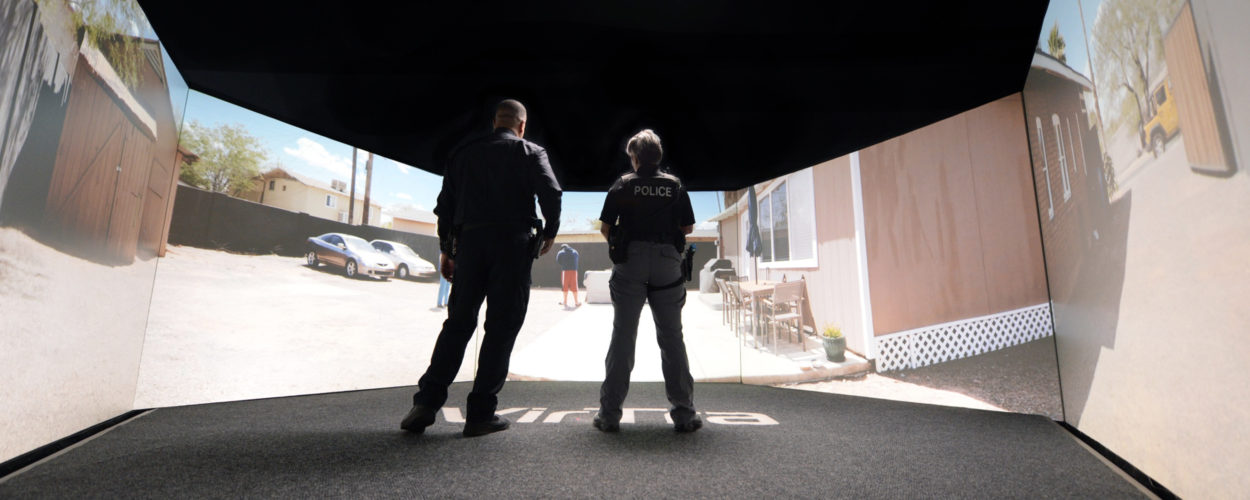
Originally published by POLICE MAG
How realistic is it?
This is the first and possibly most important question to ask before going with any VR simulation training tool. If it is unrealistic and looks more like a video game or doesn’t meet real-world task demands, trainees will not take it seriously, and potentially resulting in negative training artifacts. Did your officers experience simulation sickness during your test and evaluation?
How relevant is the content?
As training needs change and evolve with time, so should the content of your training. With new laws and media attention, training pain points can shift quickly. Make sure that your training platform can keep up by either receiving annual updates or being able to download new content.
Is the training transferrable?
It is not really “training” if cadets are not gaining any skills or knowledge – it’s just a “check the box” style of learning that is only completed to meet requirements. When officers are really prepared for the field, it will show in their performance both in and out of the training room. If officers are recalling skills learned from the training program and applying them to real life, it is safe to say it is an effective method. If you can not 100% guarantee accurate weapon tracking, you may be building bad skills.
Can you use the same tools you use on the job?
We have all seen the colorful training pistols or VR controllers, but they don’t recoil and often don’t even have the same weight and fit as the officer’s duty weapon. You also should be able to train without only firearms, but all the tools on your belt. This includes CEW devices, OC spray, flashlights, and even just using your verbal de-escalation techniques.
Are there flexible pricing options?
When purchasing a VR training tool, are their choices beyond just making an upfront capital purchase? See if there are options for obtaining grants, or even if the VR company has promotions or leasing opportunities. Many agencies are tight on cash these days, but that shouldn’t stop you from being able to obtain effective training. Spending more on training means less possibility of costly failure-to-train lawsuits!
Recently Published
Join Our Newsletter







